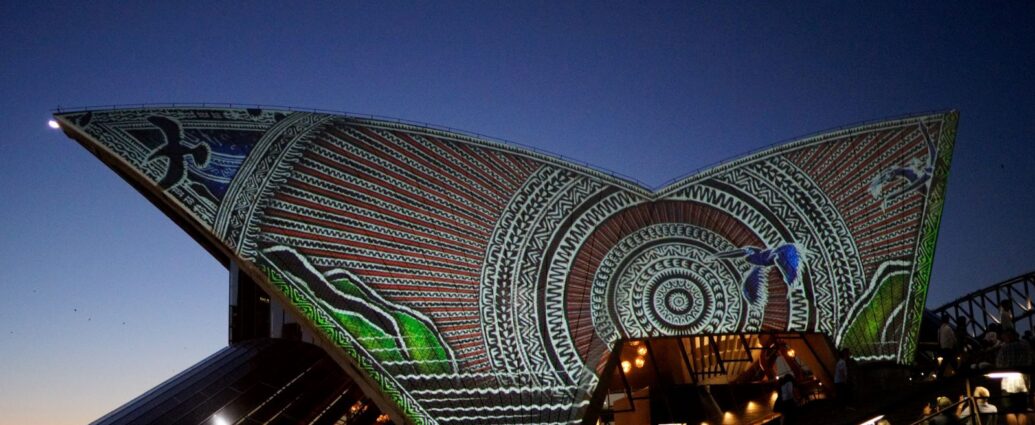Content warning: This article contains discussion of racism.
Alex Cooke
Rampant racial abuse and misinformation has spread throughout the campaign for Australia’s upcoming Voice to Parliament referendum, which will see the implementation of a First Nations advisory group to provide insights to the Federal Government on matters affecting their communities.
This vote is set to take place on October 14th. The referendum requires a majority of votes in a majority of states to succeed. If the vote is successful, parliament will then design the Voice via legislation.
What is the Voice to Parliament referendum?
The Voice to Parliament referendum was introduced under the Uluru Statement from the Heart as an attempt to address the historical mistreatment and marginalisation of Aboriginal and Torres Strait Islander communities.
This statement was created in 2017 by indigenous leaders, and calls for changes in the Australian political system that could help First Nation Australians. It is the largest consensus of First Nations peoples on a proposal for substantive recognition in Australian history.
Prime Minister Anthony Albanese said that a ‘yes’ result in the Voice referendum would introduce “a committee of Indigenous Australians, chosen by Indigenous Australians” that would “[give] advice to government so that we can get a better result for Indigenous Australians.”
The referendum aims to address the systemic discrimination faced by Indigenous Australians, including lower employment rates and a shorter life expectancy. The suicide rate among Indigenous Australians is almost double that of non-Indigenous Australians. And despite representing less than 4 per cent of Australia’s population, Aboriginal and Torres Strait Islander people account for 32 per cent of prisoners.
The Minister for Indigenous Australians, Linda Burney, has said she will ask the Voice to prioritise Indigenous health, housing, education and jobs.
Wamba Wamba elder Jeanette Crew said that the vote will “help our voices to be heard, to give the benefit not only to Aboriginal people but to our local economy and our own local society.”
Racist misinformation during the Voice referendum campaign
Campaigners are concerned by the spread of misinformation during the Voice to Parliament campaign period.
This includes social media posts perpetuating racist stereotypes about the consequences of the referendum. Many posts express reactionary fears that this vote will give First Nation people more power than white Australians. They also perpetuate ideas that they will take their land.
Tens of thousands of Australians marched yesterday in support of a Yes vote at the October 14 referendum on an Indigenous Voice to Parliament. The show of support came as cracks – and confused messages – have started to appear in the No case. @latingle reports. #abc730 pic.twitter.com/NvQxdK2Kls
— ABC News (@abcnews) September 18, 2023
Similar reactions have been seen during other legislative attempts at giving First Nation people more rights, such as the Aboriginal Land Rights Act in 1983.
Other voters have expressed that the referendum is hypocritical, and not progressive enough to heal years of political injustice.
Lidia Thorpe, an independent senator, has called for the referendum to be cancelled. She stated that the ‘yes’ campaign “is hand-on-heart do-gooders who think that they know best for us. That’s a form of racism as well.” She also believes that a ‘no’ vote would signify a culture of racism in Australia.
Critics of the vote have expressed concern that the proposed plan for a ‘yes’ result is too vague. Many people are voting ‘no’ because they are not certain what a ‘yes’ vote stands for.
@liberalaus 5 reasons to vote no. #thevoiceaustralia #auspol #fyp #australia
♬ original sound – Liberal Party of Australia – Liberal Party of Australia
Impact of misinformation on polls
This referendum marks the first change to the Australian constitution in 46 years.
Opinion polls initially said that public opinion favoured the ‘yes’ campaign but they now suggest a win for the ‘no’ campaign is more likely.
The Australian Associated Press’ FactCheck group has been monitoring the output of misinformation during the campaign. The team have said that the spread of misinformation for the Voice referendum is greater than during Australia’s 2022 general election. They have debunked inaccurate posts on the rules of a referendum, false claims about the constitution, key campaign figures, and the possibility of a future “black state”.
Concerns over bot-produced content have also been expressed by Voice advocates, saying newly created social media accounts are spreading misinformation for the ‘no’ campaign. Despite being shared prolifically, many of these posts have minimal engagement.
These social media posts have had real-world effects. 13 Yarn, a crisis line for First Nations Australians, has stated they had a “106 per cent rise in the last four months on abuse calls,” which attribute to the referendum.
Tens of thousands of people are flooding the Melbourne CBD to support an Indigenous Voice to Parliament.
History is calling.
#VoteYes pic.twitter.com/UACLpGsY9W
— Wazza from Melbourne (@Melbourne_says) September 17, 2023
READ NEXT:
-
INFODEMIC: THE DANGER OF FAKE NEWS
-
AUSTRALIA TO PRESCRIBE RECREATIONAL SUBSTANCES FOR MENTAL HEALTH
-
BRITISH MUSEUM THEFT SCANDAL REIGNITES ARGUMENT FOR REPATRIATION
Image courtesy of Stanley Cheung on Unsplash. No changes were made to this image. Image license found here.

